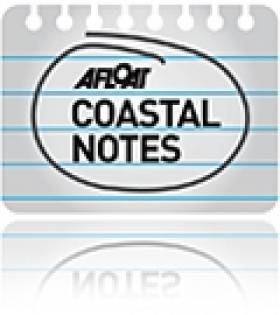Displaying items by tag: Police Service of Northern Ireland
Police Seek Help from Northern Ireland's Coastal Communities
Project Kraken is a UK-wide campaign which aims to increase vigilance along the coastline and encourage the community to work together to help combat any criminal or terrorist activity.
Inspector David Connery explains: "We're encouraging those living by the coast and members of the maritime community to look out for any suspicious activity and report it to the police immediately so that we can take action if necessary.
"Beaches, marinas and harbours can be uncomplicated points of entry into Northern Ireland and police rely on members of the public to make us aware of anything untoward.
"Please contact police immediately if you find:
Unusual boat movements late at night or early in the morning.
People being landed at unusual locations.
People not knowing about boat handling.
People with inadequate dress for sailing.
Boats moving around at night time with no navigational lighting.
RIBS being loaded / unloaded at unusual times.
RIBS being loaded / unloaded at unusual places.
Packages being transferred out at sea from larger boats.
Packages being transferred to waiting cars.
Strangers acting suspiciously within the marina.
Strangers wanting to hire boats.
Boats with extra fuel tanks.
Boats with above average crew for the size of boat.
"If you notice anything suspicious or unusual please never involve yourself or touch any suspicious packages. Make a note of any registration numbers, markings or descriptions, and call your local police on 0845 600 8000. If the situation requires an emergency response, call 999.
"If someone would prefer to provide information without giving their details, they can contact the independent charity Crimestoppers and speak to them anonymously on 0800 555 111," Inspector Connery added.
Police are also encouraging local boat owners to register their vessels with the PSNI Ports Unit. This means that in the event of a theft, the rightful owners of the boat can be identified more quickly. Forms can be found on www.psni.police.uk or please contact the PSNI Ports Unit on 0845 600 8000.
Northern Ireland Police Launch Plan to Tackle Boat Crime
The Police Service of Northern Ireland has launched a new initiative to tackle boat crime.
Police officers will be visiting boat clubs in the next few months to discuss crime prevention measures that members can take. In addition, officers will be supplying clubs with a limited number of specially designed engine covers to make outboard boat engines less desirable to thieves.
Crime Prevention Inspector David Connery explains: "Last year, 24 boats were stolen in Northern Ireland and 58 outboard engine thefts were reported. Due to the nature of these crimes, it can take quite a while for the theft to be reported to us and detecting the equipment may prove difficult."
Inspector Connery said that Police want to work alongside responsible owners to reduce thefts from boats in their area and help deter potential offenders.
He continued: "Thieves are attracted to outboard engines as they are relatively easy to detach from the boat. We're encouraging owners to remove the original cowling and replace with a cover; the resale value for the engine plummets when this isn't present.
"Other crime prevention steps that boat owners can take include:
RECORD IT - Make a complete inventory of your equipment, especially outboard motors. Include serial numbers and any identifying marks specific to your property. Photograph items that are distinctive and keep with your inventory.
MARK IT - Mark property with your postcode and name/house number in a concealed area. There are many ways to do this from etching or marking with waterproof indelible pen to 'Smartwater' (or other specialist identifying methods).
REMOVE IT - The best way to keep thieves from stealing property is not to leave valuables onboard – removing electronic equipment and other valuables will eliminate the majority of thefts. Although many boats have lockable storage installed by boat manufacturers, they are sometimes not adequate to deter thieves. Off the shelf locks and security hinges can assist with security. Window locks on sliding windows (or placing a strip of wood where the glass slides) will assist with security.
CLUB SECURITY - A tactful offer to assist a stranger on the premises in finding a person or boat will help to deter a thief and assist a genuine member.
LOCK IT - Lightweight hasps and locks are easily broken or cut providing access to equipment stored in lockers. Outboard motor locks and quality shielded 'heavy duty' locks can assist; although they are more expensive initially, a quality lock will prevent a thief from taking your property. Inflatable tenders are easily moved and are a popular item for resale; secure them to a fixed point using a quality chain or lock.
REPORT IT - Report any thefts immediately to Police, your club and your insurance company. Use your inventory and photographs to assist in giving as much information as possible.
For further information on marine security please contact your local Crime Prevention Officer on 0845 600 8000.





























































